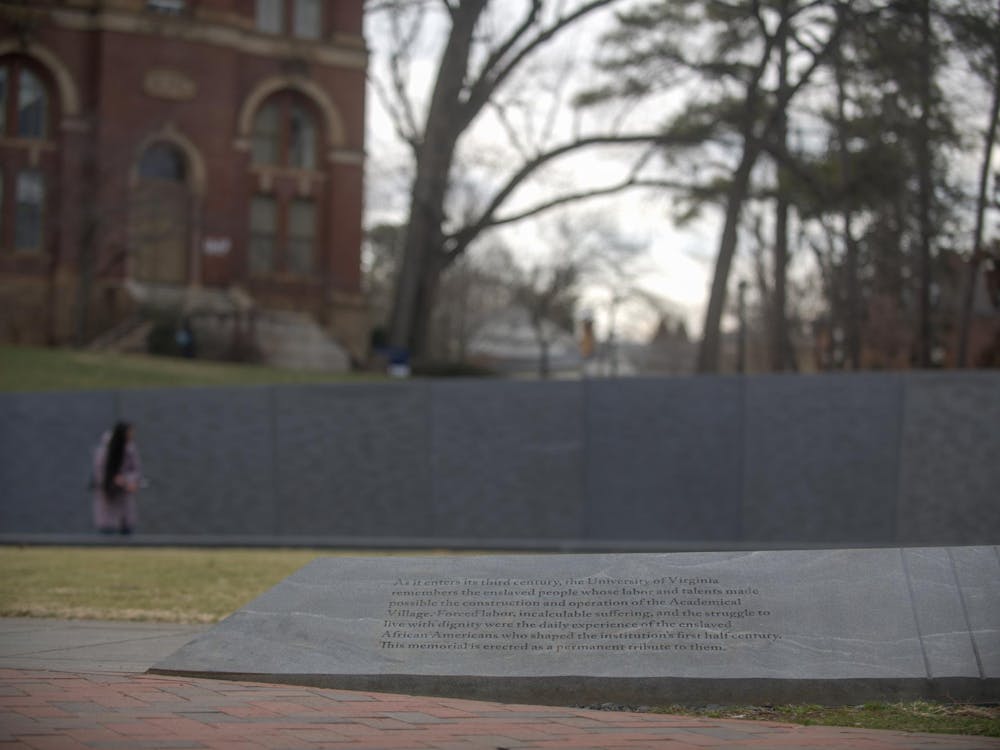It's a love story, of sorts, involving one Northwestern Law School graduate (Andy Block), one University alumnus (his wife), 15 University law students (his pupils), and hundreds of children (his clients), revolving around one organization - the JustChildren Program.
Andy Block was working with legal services for kids in a public defender's office in Seattle when he fell in love with a University alum (CLAS '89) and social worker from Charlottesville. He loved the woman but also loved his job working with children. Block came up with the perfect solution. He married, moved to Charlottesville and founded the JustChildren Program here in 1998, an offspring of Charlottesville-Albemarle Legal Aid.
The program provides free legal services to juveniles of low-income families, as well as information and resources for parents informing them of their children's legal rights.
Block secured funding to launch his initiative from a Sorros Justice Fellowship from the Center on Crime, Communities and Culture of the Open Society Institute.
Most of the cases JustChildren deals with are school-related or having to do with children with mental or physical disabilities.
"We have around 30 or 40 open cases right now. But during the summer, that number goes down because no one's in school, so no one's getting into trouble," Block said.
And in this post-Columbine era, trouble can mean anything as menial as toting a toy gun in school to receiving a note that says, "Do you want to buy marijuana?"
"School officials are coming under increasing pressure to ensure beyond a shadow of a doubt children's safety," Block said.
Well-publicized zero-tolerance rules, meaning one strike and you're out, are becoming increasingly common in schools across the country. Although good in theory, these rules can make things worse for the child and community involved.
"For low-income families, public schools are often the only option. So if a kid's kicked out, they sit at home or on the street, which doesn't really solve anything," Block said.
This is where JustChildren comes in. The program is designed to locate resources and provide legal assistance for children who are in trouble. They look for programs to help kids in lieu of incarceration so they will be less likely to get in trouble again and more likely to lead healthy lives.
"Research shows that merely being punitive is not effective," Block said. "In the last 10-15 years, this country has taken a more punitive attitude toward kids. Sixteen- and 17-year-olds can't vote, smoke or drink, but they're being tried as adults. The point is to respond to this trend and focus on helping them instead of locking them up."
In Virginia, the level of social services available varies a lot depending on where you live. For example, Charlottesville and Albemarle County have more resources than does Nelson County, Block said.
"If you live on the wrong side of the county line, your opportunities, literally, are much more limited. It's all about money," he added. "It's about finding the money to pay for services, and locating who has the legal responsibility to pay for them."
Block employs one other full-time attorney, Jennifer Smith, who is a 1999 University School of Law graduate. She volunteered for the program during her third year and was recently contacted by Block, who offered her a full-time position.
The pro-bono clinic that launched Smith's career with JustChildren initially began as purely volunteer work through the law school.
Now, 15 law students each year have the opportunity to volunteer with JustChildren through a School of Law course called The Child Advocacy Clinic. They are compensated four credits for their time and services rendered.
JustChildren also has an education outreach coordinator, who along with Block and Smith compose the core of the JustChildren program. But they depend heavily on the University law course for extra needed help.
"The course gets students out of the classroom and lets them deal with real clients who, because of their financial situation, genuinely need your help," said 2001 Law graduate Ryan Coonerty of Block's course.
Students are assigned cases, help with investigations and research and assist in putting cases together. Third-year law students even have the opportunity to appear in court.
"Once a student gets their third-year practice certificate and completes the prerequisite courses, they can stand up and speak in court," Smith said. "It's really a great opportunity for them."
In addition to school-related cases, the JustChildren Program represents mentally and physically challenged kids who are entitled to social assistance or medical care but who, for one reason or another, are being denied that care.
"We help lots of children with disabilities to get their legally required services," Block said. "It's often children with disabilities who are being punished, and around forty percent of kids we lock up today have disabilities."
Although JustChildren does not often turn away cases, there is an income cap placed on potential clients.
"We have financial guidelines," Smith said. "We work exclusively with low-income families, so if they make over a certain amount of money in a year, we can't represent them."
The JustChilden program is also very involved in parent education. It received a grant from the Virginia Law Foundation and plan to use it for educational programs to inform parents of their children's rights.
When asked if he and JustChildren were here to stay, Block said, "As long as we keep raising money, we'll stay on. It seems like there's a lot of work to be done."
Although the most important beneficiaries of the program are the children, Coonerty says it offers the law students who become involved an important perspective.
"The program reminds us of the reason most of us came to law school, which is to seek justice and help others. Somehow, that message too often gets lost along the way"






